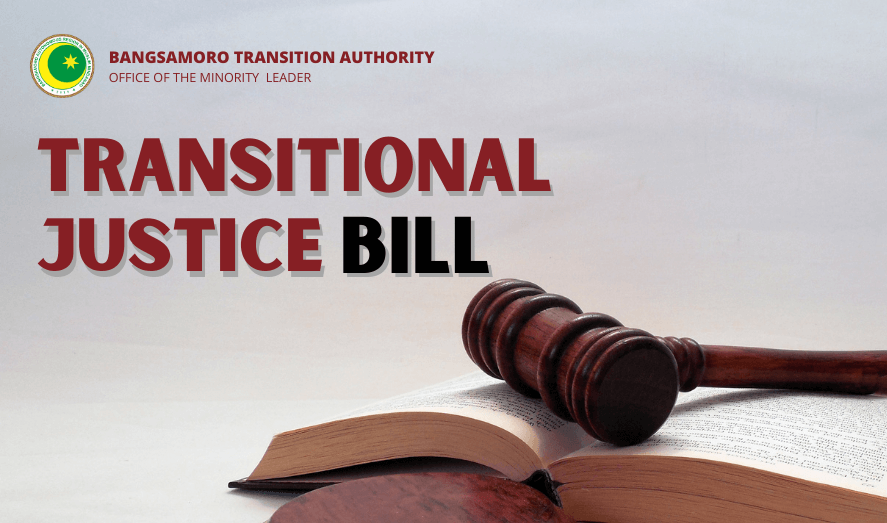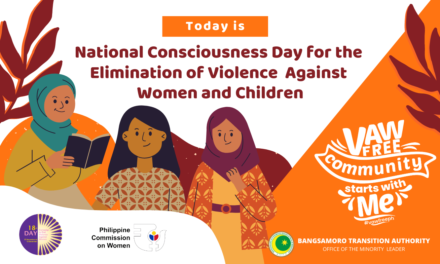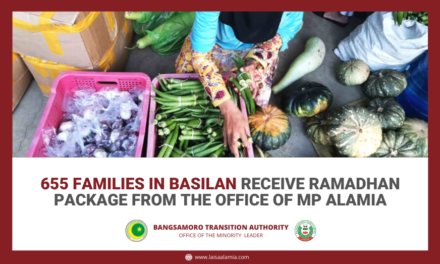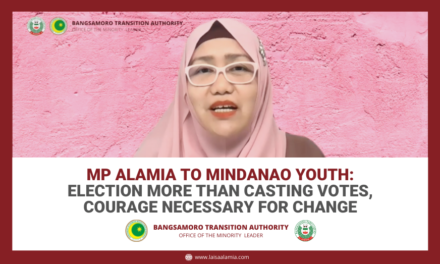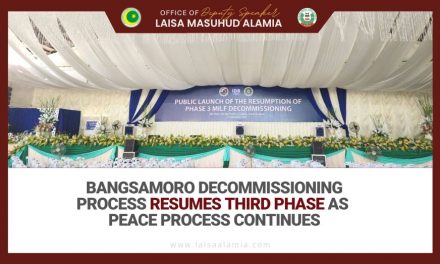There can be no peace without justice, which is why transitional justice mechanisms are embedded in the Bangsamoro Organic Law as part of addressing the grievances of the people in their struggle for self-determination.
The national government’s legislative arm has taken the first steps in institutionalizing said mechanisms as Representatives Amihilda Sangcopan (Anak Mindanao Partylist) and Kit Belmonte (6th District, Quezon City) filed House Bill No. 4003, a bill seeking to create a Transitional Justice and Reconciliation Program as mandated by the Comprehensive Agreement on the Bangsamoro.
Human rights lawyer Laisa Alamia, minority floor leader of the Bangsamoro Parliament, was invited as a resource person in a committee hearing yesterday, September 7, with the House Committee on Peace, Reconciliation, and Unity to discuss the proposed legislation.
Alamia expressed support for the legislation, commending the initiative as it “recognizes the need for healing and reconciliation in the Bangsamoro, and raises transitional justice as a way to address this.”
“A nationwide approach to transitional justice and reconciliation is fundamental in the whole peacebuilding process,” said Alamia who, together with the Bangsamoro Parliament, has worked on adopting Resolution No. 58 early this year, calling for the creation of a transitional justice and reconciliation commission in the BARMM. Once established, the said commission will lead to the implementation of TJ mechanisms in the region.
However, Alamia emphasized that given the Bangsamoro government’s limited jurisdiction and authority, the “stakes and requirements of institutionalizing TJ are massive, and the peacebuilding agenda should be carried mutually by Bangsamoro stakeholders and the Filipino society at large”
According to Alamia, the need for healing and reconciliation in the BARMM will be effectively addressed by the integrative efforts of the national and regional governments. Knowing this, she recommended to include provisions in the bill that will establish intergovernmental relations between the proposed National Transitional Justice and Reconciliation Commission on the Bangsamoro and the regional level TJ mechanisms that the Bangsamoro government has been establishing.
But more than coordination between the national and regional governments, Alamia highlighted the importance of inclusion and empowerment among the Bangsamoro people, noting that the proposed transitional justice program should be “co-created with Bangsamoro stakeholders, including the mechanisms to be formulated to implement such.”
HB 4003 is the first step in ensuring the creation of transitional justice mechanisms, as provided for in the Bangsamoro Organic Law (BOL). The BOL, under its provisions on Basic Rights, highlights the importance of transitional justice in “addressing the legitimate grievances of the Bangsamoro people and the indigenous peoples, such as historical injustices, human rights violations, and marginalization through unjust dispossession of territorial and proprietary rights and customary land tenure.”

